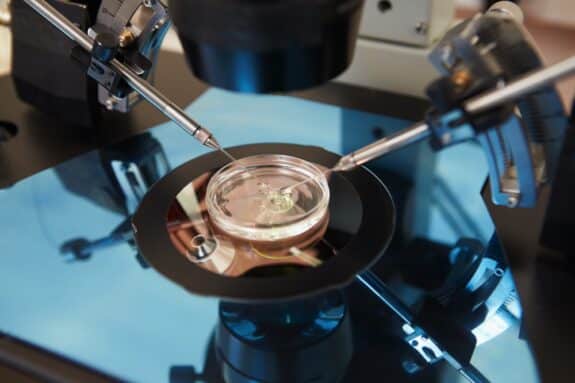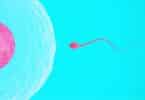According to a recent study conducted by the Center for Reproductive and Genetic Health in London, using frozen embryos instead of fresh ones during in vitro fertilization may lead to heavier, healthier babies. This data could change the face of in vitro fertilization as we know it.
Presented at the British Fertility Society’s annual meeting, the study measured the weight and gestational period for 384 fresh embryo infants and 108 frozen embryo infants. To help ensure that study’s accuracy, all infants included in the study were singleton births.
On average, infants born from frozen embryos were 0.56 pounds heavier than infants born from fresh embryos. Researchers noted that there were also fewer frozen embryo babies were considered to be low birthweight; 3.7% frozen embryo babies were considered low birthweight compared to 10.7% low birthweight babies in the fresh embryo group.
The team also found that the gestational period for frozen embryos was longer than fresh embryo infants – 0.65 weeks longer on average.
Researchers are unsure as to why frozen embryos seem to fare better than fresh embryos, but Suzanne Cawood says that the benefits of using a frozen embryo during IVF is evident: lower birthweight and premature infants tend to struggle more with health issues than heavier infants, full-term infants. The closer the baby comes to full-term and average weight, the lower the risk for various health conditions shortly after birth and later in life.
“The reasons behind these findings are not yet fully understood, but one possibility may be that there is a difference in the uterine environment between fresh cycles, when embryos are transferred soon after the eggs have been collected, compared to frozen cycles with the uterus had not been stimulated in the days before the transfer,” stated Cawood.
Cawood also stated that this study adds to the growing evidence that single embryo transfers are safer for mom and baby.
“These initial findings, if proved accurate following further research, will give the medical profession more evidence to encourage parents to accept single embryo transfer, which reduces the risks of multiple births to both mother and babies,” she stated. “Single embryo transfer gives the best possible outcome – a healthy singleton baby – with the chance of further frozen embryo transfers in the future.”
Related Articles:







